The business analyst profession is one of the most popular career choices in the business world. The role has plenty to offer not only as a stand-alone career but also as one of the best gateways into the field of analytics and data science. What's more, the business analyst job allows you to constantly evolve by learning new techniques to address complex business problems and find groundbreaking solutions in today's technology-driven economy.
So, in this article, we'll discuss how to become a business analyst.
We’ll discover who the business analyst is, what they do, how much they make, and what skills and academic background you need to become one.
You can also check out the video on the topic below, download our free infographic, or scroll down to keep on reading.
What Is a Business Analyst and How Do They Fit Inside a Company?
The title “Business Analyst” sounds a bit generic at first and may cause hesitation among entry-level candidates. However, the fact that this is a flexible position could be encouraging as the business analyst role encompasses many different activities in a firm. In fact, depending on the organization, this can be an entry-level position or a role for experienced professionals. This means business analysts engage with a wide variety of tasks and the business analyst job description from one firm to the other can be very different. In different businesses, business analysts will be focused on some of the following types of activities:
- Process and systems improvement (in terms of efficiency and effectiveness)
- Solving business problems
- Looking for savings and efficiencies
- Focusing on business development and searching for new opportunities
- Performance analysis
- Competitor analysis
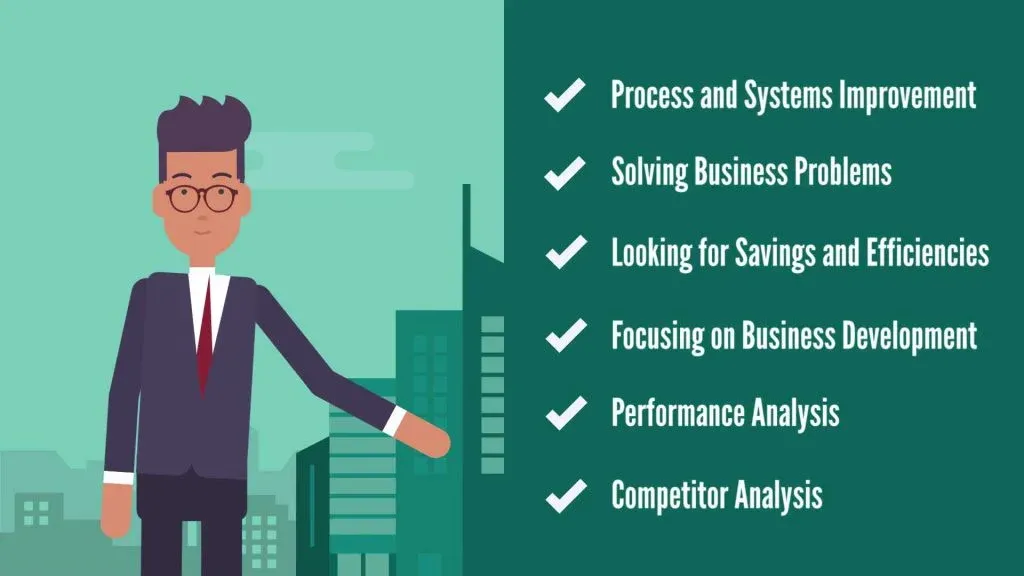
Indeed, “business analyst” is one of the most dynamic roles in a company. They may report their findings to the head of a particular division they are assigned to; or alternatively, they might be discussing a specific case with a product or a project manager. And, in some instances, the business analyst serves as the link between the business development manager and the respective head of division or product owner. One thing is for sure - you will never be bored on the job.
That was the elevator pitch of this exciting job role. But to gain a better understanding of what it means to be a business analyst, we need to take a closer look at their typical day-to-day responsibilities.
What Does a Business Analyst Do?
The answer is – it varies.
In different companies, business analysts carry out different activities. But here are some of the most common business analyst roles and responsibilities.
Business analysts analyze the performance of a particular segment in a company. Very often, they engage with the analysis of different processes, defining goals, and formulating hypotheses. Their effort is to optimize the performance of the particular segment of the company they have been assigned to.
They not only collect data but also apply data-driven decision making, communicate findings, and oversee the implementation of these findings.
What’s more, business analysts often conduct training for non-technical team members.
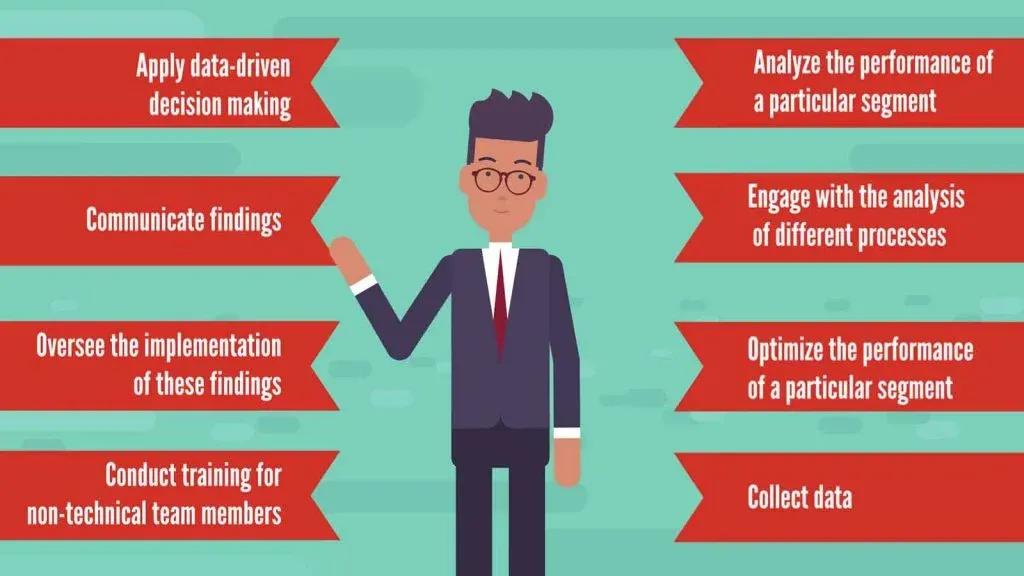
So, we can safely say that business analysts are the best communicators among problem-solvers and are always ready to lend their expertise across the organization.
The division business analysts are assigned to can be Sales, Supply chain, Administration.
Within that structure, they conduct research, try to rely on data as much as possible, and are typically involved in creating dashboards and other BI tools that allow for easier communication of their findings.
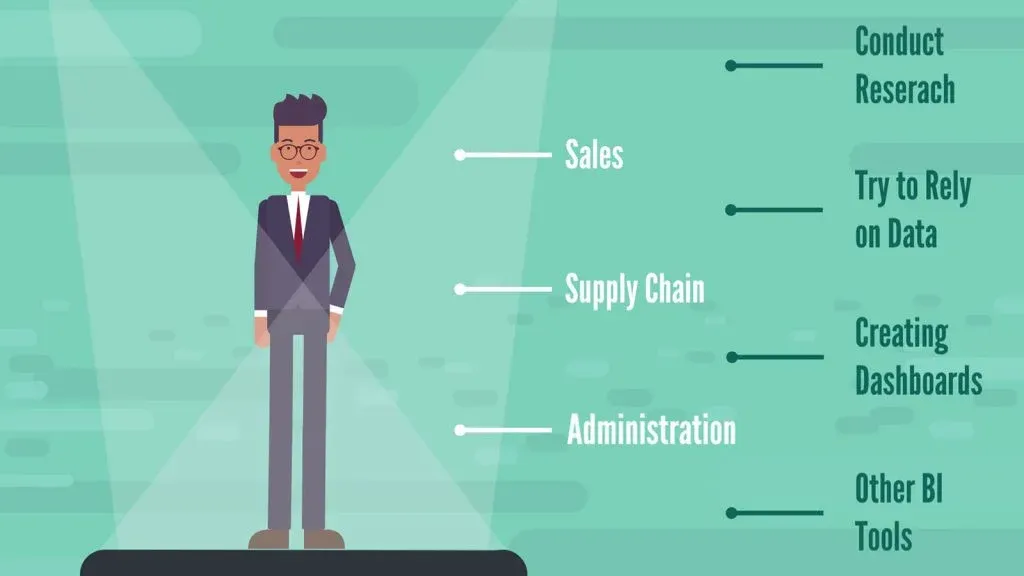
What Is a Business Analyst Salary?
How much does a business analyst make? According to the data, a business analyst earns \$68,346 on average. So, if you’re making the first steps as an entry level business analyst, you can expect a median salary of \$50k a year. Of course, as you gain more experience, your annual pay will also go higher – the senior business analyst salary reaches up to \$93k! Pretty awesome, right?

What Is the Business Analyst Career Path?
A business analyst job is a great option to explore, both on its own and as the first step on the career ladder to becoming a Product Lead, Head of Product, or Head of Division, and, why not a VP.
Most middle and large companies across all industries - including Consulting, Finance, and Tech - offer full-time business analyst positions.
Consultancy is also very popular for this profession, especially in smaller organizations. However, this option provides a business analyst with a limited view of the business compared to their counterparts employed by a company in a specific industry.
What Business Analyst Skills You Need to Acquire?
We researched 1,395 business analyst jobs to discover the desired tools and skills business analyst candidates must have.
Here’s what the data says:
- 60% of job postings emphasized Excel skills
- 41% mentioned strong communication
- 6% requested Tableau
- and 4% - Power BI
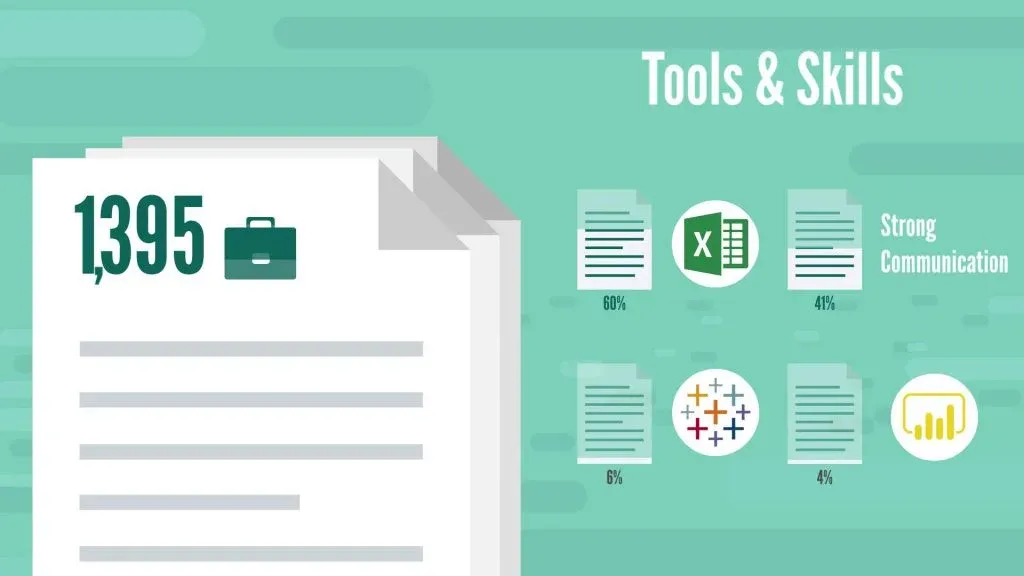
What Is the Required Business Analyst Degree?
In terms of business analyst education, 66% of the job posts require a Bachelor’s degree. This is the standard for this profession.

What Is the Necessary Business Analyst Experience?
Most employers in our sample required an average of 4 years on the job. However, 35% of job ads were also suitable for people with no prior working experience.
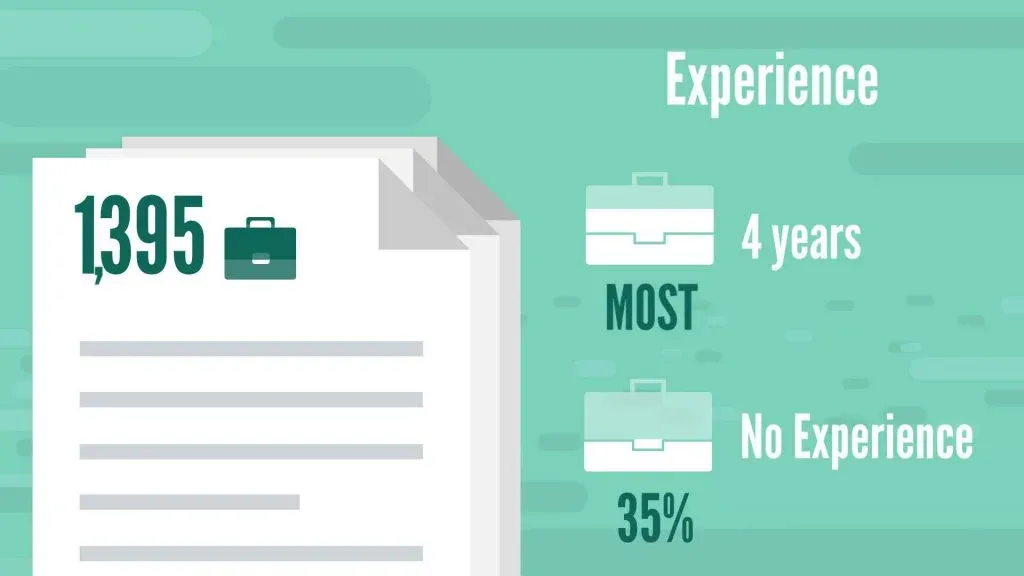
So, to sum up – if you want to maximize your chances of landing a business analyst job, you definitely need to be proficient in Excel and you need strong communication skills. And, possibly, learning a BI software (like Tableau or PowerBI) could give you the edge too.

Now you’re aware of the most important aspects of the business analyst position, what to expect from the job, and what skills to focus on to become one.
Nevertheless, if you feel like you still need additional career advice and a more detailed analysis of the career opportunities in data science, check out our course Starting a Career in Data Science: Project Portfolio, Resume, and Interview Process.






